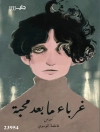In ‘Virginia Woolf: A Writer’s Diary, ‘ Woolf offers an intimate glimpse into the creative process of one of the 20th century’s most prominent literary figures. This collection of her personal reflections, written between 1918 and 1941, weaves together observations on her writing, the artistic struggle, and the broader socio-political context of her time. Woolf’s prose is characterized by its stream-of-consciousness style, reflecting her inner thoughts and ambitions with a lyrical fluidity that both captivates and challenges the reader. The diary serves not only as a chronicle of her literary journey but also as a powerful commentary on the role of women in literature during a time of significant cultural upheaval. Virginia Woolf, a key figure in the modernist movement, was profoundly influenced by her upbringing in a progressive literary family and her own battles with mental health. Her experiences as a woman writer navigating the complexities of male-dominated literary spheres significantly shaped the themes explored in her works. ‘A Writer’s Diary’ draws from these experiences, providing insight into Woolf’s unique perspective on creativity and the relentless pursuit of artistic expression. Readers seeking a deeper understanding of Woolf’s literary genius and personal struggles will find ‘Virginia Woolf: A Writer’s Diary’ both enlightening and inspiring. This diary not only enriches the narrative of Woolf’s life but also serves as a testament to the resilience of the artistic spirit, making it essential reading for anyone interested in the intersection of literature and personal experience.
Mengenai Pengarang
Virginia Woolf, born Adeline Virginia Stephen on January 25, 1882, in London, stands as a central figure in the landscape of modernist literature. Her literary contributions, marked by lyrical prose and a pioneering use of stream of consciousness, have profoundly influenced the 20th-century novel. Woolf’s upbringing in an intellectual household, where she had access to her father’s extensive library, undoubtedly contributed to her literary prowess. She began writing professionally in 1900, and her works often confronted topics of feminism, mental illness, and human existence with unprecedented depth and introspection. Notable works such as ‘Mrs. Dalloway’ (1925), ‘To the Lighthouse’ (1927), and ‘Orlando’ (1928) exhibited her narrative innovations and psychological acumen. ‘A Writer’s Diary’ (1953), a posthumously published collection of Woolf’s personal writings edited by her husband, Leonard Woolf, offers insights into her creative process and literary genius. It remains an indispensable resource for understanding her literary journey and the shaping of her novels. Tragically, Woolf’s life was marred by mental health challenges, and she took her own life on March 28, 1941. Nonetheless, her literary legacy endures, making her one of the most esteemed writers in English literature.












